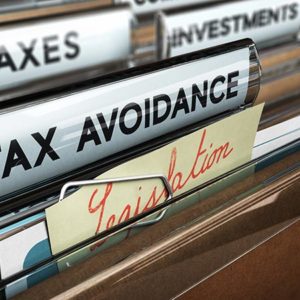
Debunking the 35 Percent Corporate Tax Myth
For years, the number one tax policy talking point from corporate lobbyists has been the claim that the United States has the highest corporate tax rate in the world. The story then goes that this high tax rate is driving away business and Congress should move to dramatically lower it.
A new study by the Institute on Taxation and Economic Policy (ITEP) reveals the reality that while corporations face a statutory tax rate of 35 percent, the tax code is so packed full of tax breaks that over eight years our nation’s largest and most profitable corporations paid an average effective tax rate of just 21.2 percent.





